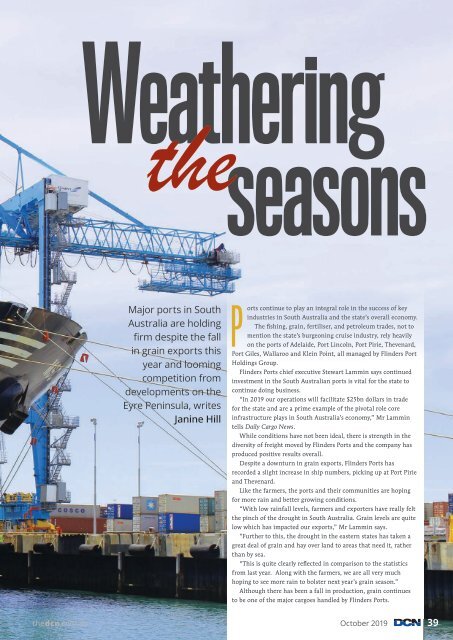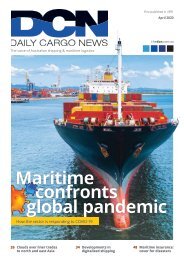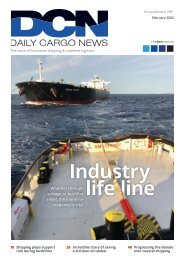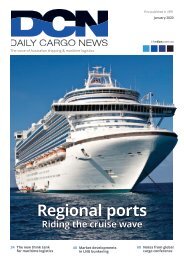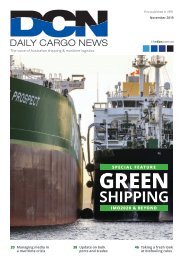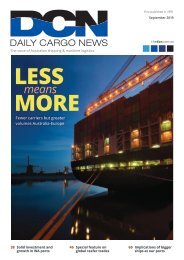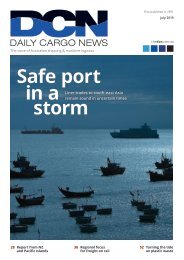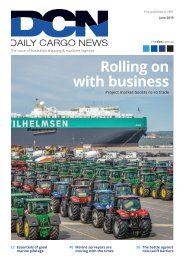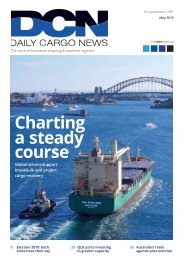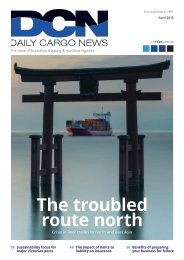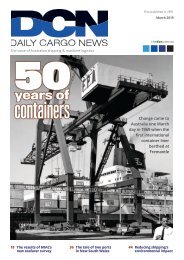DCN October Edition 2019
Create successful ePaper yourself
Turn your PDF publications into a flip-book with our unique Google optimized e-Paper software.
Weathering<br />
seasons<br />
Major ports in South<br />
Australia are holding<br />
firm despite the fall<br />
in grain exports this<br />
year and looming<br />
competition from<br />
developments on the<br />
Eyre Peninsula, writes<br />
Janine Hill<br />
Ports continue to play an integral role in the success of key<br />
industries in South Australia and the state’s overall economy.<br />
The fishing, grain, fertiliser, and petroleum trades, not to<br />
mention the state’s burgeoning cruise industry, rely heavily<br />
on the ports of Adelaide, Port Lincoln, Port Pirie, Thevenard,<br />
Port Giles, Wallaroo and Klein Point, all managed by Flinders Port<br />
Holdings Group.<br />
Flinders Ports chief executive Stewart Lammin says continued<br />
investment in the South Australian ports is vital for the state to<br />
continue doing business.<br />
“In <strong>2019</strong> our operations will facilitate $25bn dollars in trade<br />
for the state and are a prime example of the pivotal role core<br />
infrastructure plays in South Australia’s economy,” Mr Lammin<br />
tells Daily Cargo News.<br />
While conditions have not been ideal, there is strength in the<br />
diversity of freight moved by Flinders Ports and the company has<br />
produced positive results overall.<br />
Despite a downturn in grain exports, Flinders Ports has<br />
recorded a slight increase in ship numbers, picking up at Port Pirie<br />
and Thevenard.<br />
Like the farmers, the ports and their communities are hoping<br />
for more rain and better growing conditions.<br />
“With low rainfall levels, farmers and exporters have really felt<br />
the pinch of the drought in South Australia. Grain levels are quite<br />
low which has impacted our exports,” Mr Lammin says.<br />
“Further to this, the drought in the eastern states has taken a<br />
great deal of grain and hay over land to areas that need it, rather<br />
than by sea.<br />
“This is quite clearly reflected in comparison to the statistics<br />
from last year. Along with the farmers, we are all very much<br />
hoping to see more rain to bolster next year’s grain season.”<br />
Although there has been a fall in production, grain continues<br />
to be one of the major cargoes handled by Flinders Ports.<br />
thedcn.com.au <strong>October</strong> <strong>2019</strong> 39


